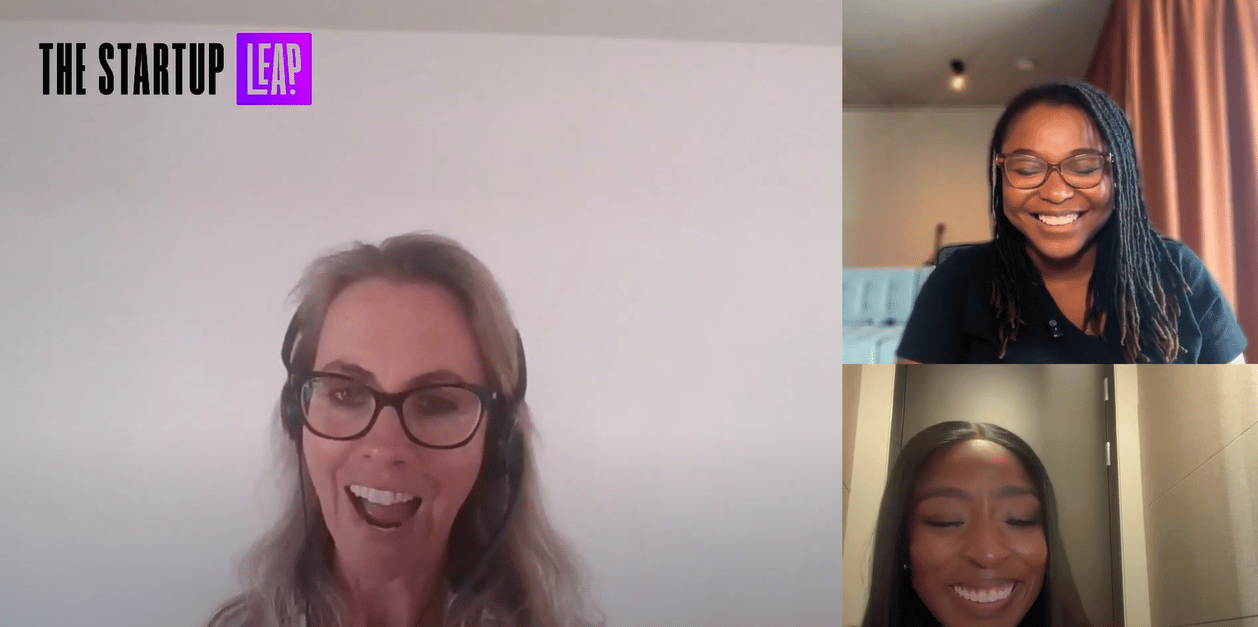Hey Startup Leapers 👋
Hope you’ve had a brilliant week.
💡 This week, we’re spotlighting Tessa Clark, co-founder of Olio - the community app turning surplus into sharing.
Launched in 2015, Olio now has 7M+ users across 60+ countries and a volunteer network of 140k+ “Food Waste Heroes.”
Let’s get into it 👇
In this episode, we get into:
The spark: when movers told her to bin good food, Tessa smuggled tins into boxes then asked, “Why isn’t there an app for this?” (00:01:24–00:02:18)
From corporate to founder: no single “big leap”- just a chain of small steps (you can incorporate a UK company for ~£15 in 10 minutes). (00:05:29)
Evidence before code: a WhatsApp MVP proved real behaviour in 23 minutes. (00:08:58–00:09:24)
Fundraising in the UK: filtering for conviction-based, mission-obsessed investors and why early backers skewed female. (00:14:46–00:17:24)
When to ignore playbooks: skip hyper-tight geo focus; launch wider, then follow the data (hello, Singapore). (00:24:56–00:27:05)

Four Builder Takeaways from Tessa
1) Prove behaviour before you build: research → WhatsApp MVP → “slightly better than WhatsApp”
Tessa didn’t start with an app; she started with evidence.
A quick survey surfaced a sharp signal: one in three people said they felt “physically pained” throwing away good food - proof the problem wasn’t just societal, it was felt at home. But she didn’t assume a marketplace would work because of that.
She and her co-founder then ran a two-week WhatsApp experiment with 12 strangers living near each other.
The very first post (half a net of shallots) was claimed in 23 minutes.
Over the fortnight, items flowed, and participants told them the product only needed to be “slightly better than WhatsApp.”
That line became a design guardrail: ship just enough UX to make discovery, messaging and pick-ups smoother than a group chat.
It killed scope creep, shortened build time, and crucially anchored early product decisions in observed behaviour, not founder imagination.
For founders, the lesson isn’t “use WhatsApp”; it’s sequence: quantify pain → observe the real-world exchange → let users define the minimum viable experience.
2) Solve the real constraint and turn the fix into the business model
Most people assumed demand would be the hard part (“who wants free leftovers?”). The data said the opposite: demand was abundant; supply was the choke-point.
Early enthusiasts hated waste, so they rarely had surplus; local cafés were too busy to list.
The unlock was operational, not purely product: match time-rich neighbours with food-rich businesses.
Olio built the Food Waste Heroes programme - now 140,000+ trained volunteers who collect unsold items from retailers, list them in-app, and give them away locally.
That single decision solved cold-start liquidity and created revenue. Why? Because Olio realised its true competitor in enterprise was the bin.
Retailers already paid waste contractors; Olio could replace disposal fees with redistribution, plus audit-ready ESG impact.
Pricing evolved accordingly: early per-collection fees (messy for budgeting, dampened usage) shifted to a flat, per-location annual SaaS licence - predictable for finance, incentivising frequent collections.
Logo progression mirrored credibility: from corner shops (free pilots) → Planet Organic (~7 stores) → Pret (100+ stores) → Tesco (2,700 stores).
An investor’s crude but memorable advice (“lick the cookies”) captured the strategy: win the relationship now, standardise and expand value later.
The broader takeaway: diagnose the true constraint in your system, design the ops to relieve it, then price against the customer’s real alternative (not a theoretical competitor).
3) Raise for the journey you’re actually on: conviction capital over consensus capital
Olio’s path required scale before monetisation.
In the UK, that immediately shrank the investor pool.
Add the labels female co-founded, tech-for-good, pre/early-revenue, and fundraising became, in Tessa’s words, “brutal.”
They responded by filtering, not convincing. The ask to investors was explicit: patient capital, mission-obsessed, comfortable with marketplace operations and long iteration cycles.
Conviction-based investors those who trust theses and instincts rather than herd signals leaned in. Many early backers were women, a proximity-to-problem effect: they got domestic waste dynamics and community-driven distribution.
That filtering did more than close a round; it shaped execution.
With a board aligned to experimentation and durability, Olio could resist premature revenue hacks, run real operational pilots, and let the Food Waste Heroes model mature.
The meta-lesson for founders: don’t widen your funnel by diluting your story.
Tighten the screen to investors whose time horizon and worldview match your business physics and expect your earliest believers to cluster where lived experience of the problem is deepest.
4) Let data, not dogma, set your go-to-market: flip the message; go wider, earlier; professionalise later
Two counter-intuitional moves defined Olio’s scale phase.
First, messaging. The early “save the planet” story didn’t convert. Behaviour moved when they flipped to WIIFM (“What’s In It For Me”):
Consumers: “Free useful stuff nearby. Meet your neighbours.”
Enterprises: “Cut waste-contractor costs. Generate reportable ESG.”
Climate impact remained true, but it shifted down the message stack. Adoption rose.Second, geography. Playbooks say “win one postcode, then expand.” Olio learned its early adopters would travel across London for worthwhile items, so it went city-wide earlier to thicken liquidity.
Internationally, they toggled “all countries” live then watched where organic usage stuck.
The surprise leaders weren’t France or Germany but Singapore and parts of LatAm. That pull informed the next investments: a lightweight Ambassador programme to catalyse local networks, and Spanish localisation once the data justified it.
Only after the pull was obvious did the company standardise contracts, clean pricing, and harden processes graduating from scrappy experimentation to an enterprise-ready machine.
The lesson: sequence matters. Lead with reality (what people actually do and say yes to), not received wisdom.
📚 Interesting Reads & Resources
Thanks for reading 💜
Tell us what you loved (or didn’t), refer a guest, or send a dilemma here.
You can read more about TSL on our website, and get us to 2k subscribers on YouTube by subscribing and sharing with your friends!
Want to sponsor? → drop us an email.

